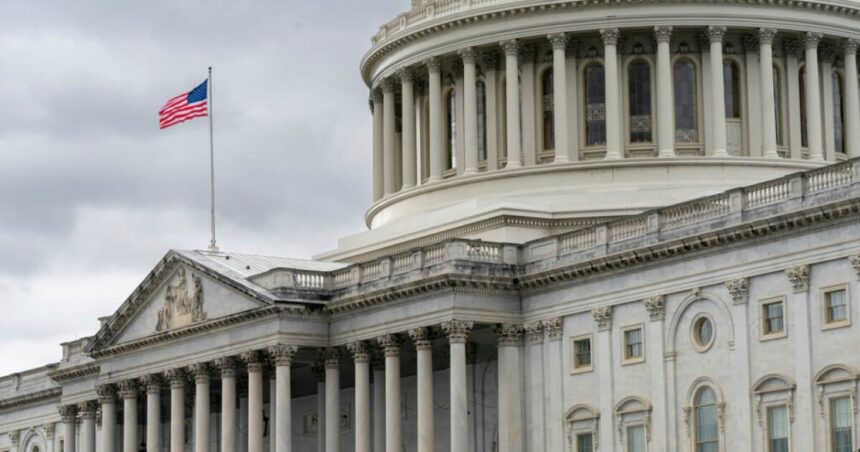A bill that aimed to expand the child tax credit and restore certain tax breaks for businesses was unable to move forward in the Senate on Thursday due to opposition mainly from Republicans. They argued that waiting until next year would put them in a better position to negotiate a more favorable deal.
Majority Leader Chuck Schumer, D-N.Y., challenged Republicans to vote against the tax cut package before they went on recess for the month. He emphasized that voting against the bill would mean opposing tax cuts for many low-income families and local businesses.
The Senate fell short of the 60 votes required to advance the legislation, with 48 in favor and 44 opposed. Three Republicans – Sens. Josh Hawley of Missouri, Markwayne Mullin of Oklahoma, and Rick Scott of Florida – joined with Democrats in support. On the other hand, Sens. Joe Manchin of West Virginia and Bernie Sanders of Vermont, both independents who caucus with Democrats, were against the bill.
Both parties were using this issue as a way to appeal to voters in the upcoming election. Schumer placed the responsibility on Republicans for blocking tax cuts that were supported by the business community and would benefit an estimated 16 million families. He also aimed to counter claims from Republican nominee Donald Trump’s running mate, Sen. JD Vance of Ohio, who accused Democrats of being “anti-family.”
Senate Republican leader Mitch McConnell of Kentucky criticized the changes to the child tax credit, calling it “cash welfare instead of relief for working taxpayers.”
The bill failed to progress in the Senate despite passing the House with overwhelming support. Republicans wanted the bill to go through the Senate Finance Committee for amendments, but this did not happen.
According to a liberal think tank, the changes in the child tax credit could lift as many as 500,000 people out of poverty. The bill would be paid for by advancing the cutoff date for retroactive claims from companies that retained employees during the COVID-19 pandemic.
Despite facing procedural hurdles, Schumer decided to bring the bill to a vote during the election season to highlight the issue. The bill was crafted through negotiations by Rep. Jason Smith, R-Mo., and Sen. Ron Wyden, D-Ore.
Sen. John Thune, the second-ranking Senate Republican, expressed confidence that Republicans would have a stronger bill if they revisited the issue next year when they potentially had the majority.





